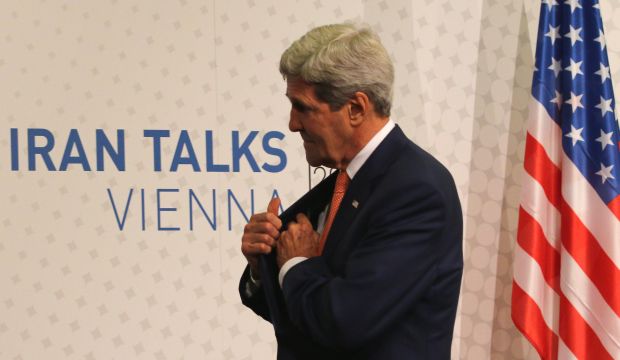So the interim nuclear deal reached between Iran and the P5+1 world powers, the UN Security Council powers and Germany, has been extended. In spite of last-minute efforts from international convoys fueled by hope and desperation in Vienna this weekend, it is now clear that no final agreement has yet been reached.
The chances were always slim. Months of talks yielded little progress, and agreement on several of the key issues is still very far away.
Iran remains adamant that it needs to expand its uranium enrichment activities in order to produce a suitable amount of nuclear fuel for the reactors it intends to build at some point in the future. Ali Akbar Salehi, the head of the Atomic Energy Organization of Iran (AEOI), has said that while the AEOI does not necessarily intend to carry out all enrichment activities inside Iran, it needs to be able to produce nuclear fuel for power plants because it cannot rely on international promises to provide fuel.
Salehi is merely echoing a longstanding Iranian position that was outlined to me by Iran’s Ambassador to the IAEA, Ali Asghar Soltanieh, some years ago. In his elegant Vienna office, Soltanieh told me that just before the 1979 Islamic Revolution Iran paid for US nuclear fuel that was never delivered following the revolution. Iran, he explained, cannot therefore trust foreign fuel supply guarantees. This attitude has driven Iranian thinking throughout the crisis, and chimes with the more general imperative that the state must be “self-sufficient,” a demand also enshrined in its constitution. To get Iran to compromise on this issue has so far proved impossible.
The P5+1, however, is equally adamant that Iran must scale back its enrichment activities, which, it rightly points out, could be used as a means of producing a nuclear bomb. There is also (again, rightly) skepticism about Iran’s claims that it must produce its fuel indigenously, especially since no nuclear plants yet exist for it to supply.
Speaking on July 10, Britain’s (newly replaced) foreign secretary, William Hague, was blunt: “Achieving an agreement is far from certain,” he said. “Significant differences remain . . . which are yet to be bridged. But I am convinced that the current negotiations are the best opportunity we have had in years to resolve this issue.”
In this, Hague was probably correct. Huge divisions between the two sides may remain, but they are still at the negotiating table. The Iranians and Americans have started talking after more than 30 years and, whatever happens, it is unlikely they will stop now. Things have changed, irretrievably I suspect. Both US President Barack Obama and Iranian President Hassan Rouhani have taken a significant political risk in pursuing negotiations, and both have done so in the face of significant domestic opposition. A total breakdown in the talks would be disastrous for both men, and each will do everything he can to ensure it does not happen.
That is because these talks are not just about the localized problem that is the nuclear crisis. Obama came to office with a clear intention to work towards some form of détente with Iran. One of his first foreign policy statements was to address the Islamic Republic leadership directly with a qualified offer of compromise. Rouhani similarly came to office determined to repair Iran’s international image. This is critical. What is at stake in these talks—more than merely resolving the nuclear program—is the future of Iran’s place in the international community.
The nuclear crisis is only a symptom of a much wider problem between Iran and the West, and as a result it is ironically both the biggest obstacle to détente and the only means through which it can be achieved.
If Iran is to compromise, it will need sanctions relief and various economic and political inducements that will inescapably draw it back into the international system. If the P5+1 is to provide these inducements, it will need Iranian guarantees that assuage many of its well-founded fears about Tehran’s behavior.
And for these reasons it is inescapable that, over the long term, the Arab states, especially Saudi Arabia, must play some sort of role in the process. Riyadh is not directly involved in negotiations (though its stance on them is clear and vociferous) but Iran’s gradual reintegration back into the international fold cannot be achieved without talking to the “Sunni Lion.” Regional stability depends on it.
Even though the talks have been extended, the situation remains precarious—but at least the willingness to continue is there from all parties. And while they continue to talk there is at least a chance of resolution, however slim. Iran is too significant a regional actor to be ignored forever. The time has come to resolve the issue, however difficult it may be. The alternatives for a region already in the grip of chaos are too depressing to contemplate.
The counterpoint to this article can be read here.
